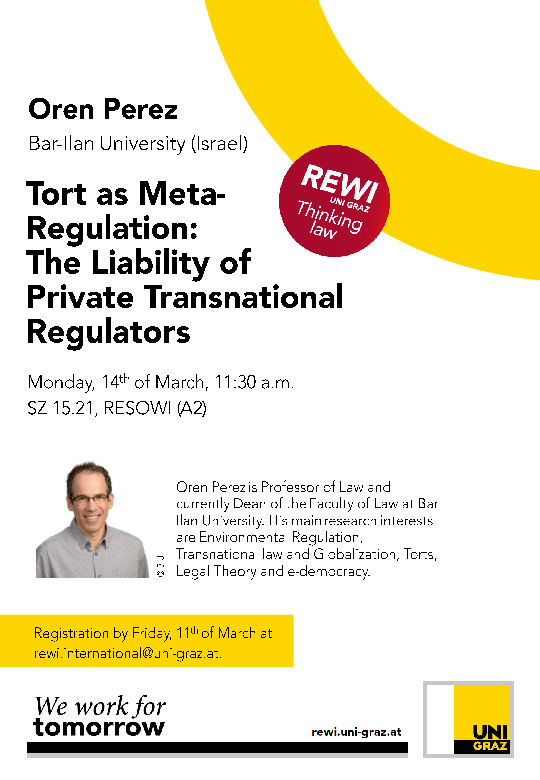Zum Inhalt:
Consumers in developed countries regularly voice concerns regarding the working conditions under which goods, especially clothing and electronics, are manufactured in developing countries. Nobody wants slavery sneakers or a sweatshop iPhone; we all want to purchase fair trade goods. But how can we identify a fair trade good? Increasingly this question is resolved by private transnational regulators that provide certifications to manufacturers in the South, filling a regulatory vacuum created by the persisting weakness of international organizations such as the ILO, UNEP, and the WHO. Absent any global oversight framework that supervises the work of such private regulators, it is unclear whether their regulatory work can be trusted. In this paper, me and my co-author, Yotam Kaplan, propose holding private transnational regulators liable in tort if their actions (or omissions) generated harm. We support this proposal through a comparative legal analysis and discuss the practicalities of its implementation.
